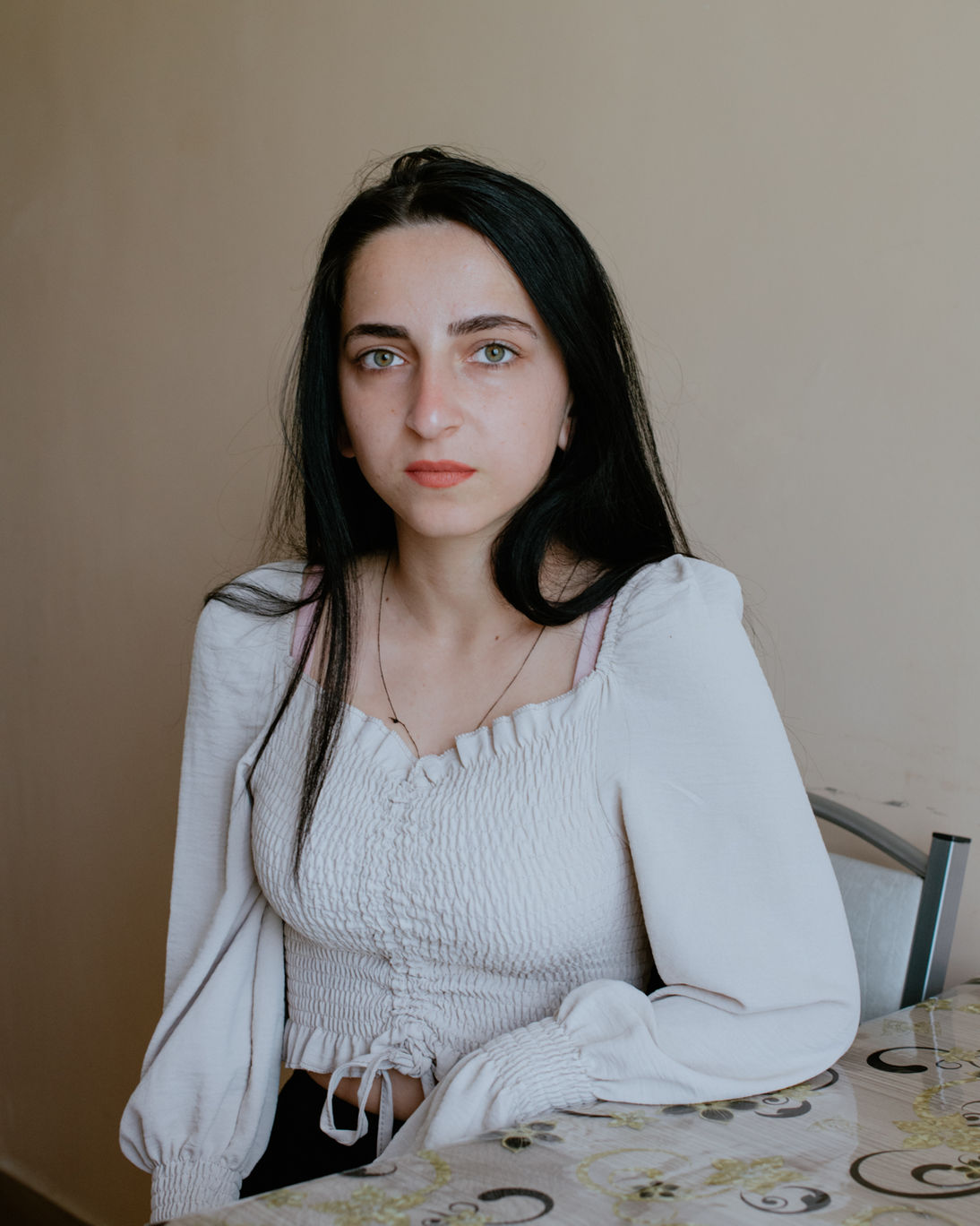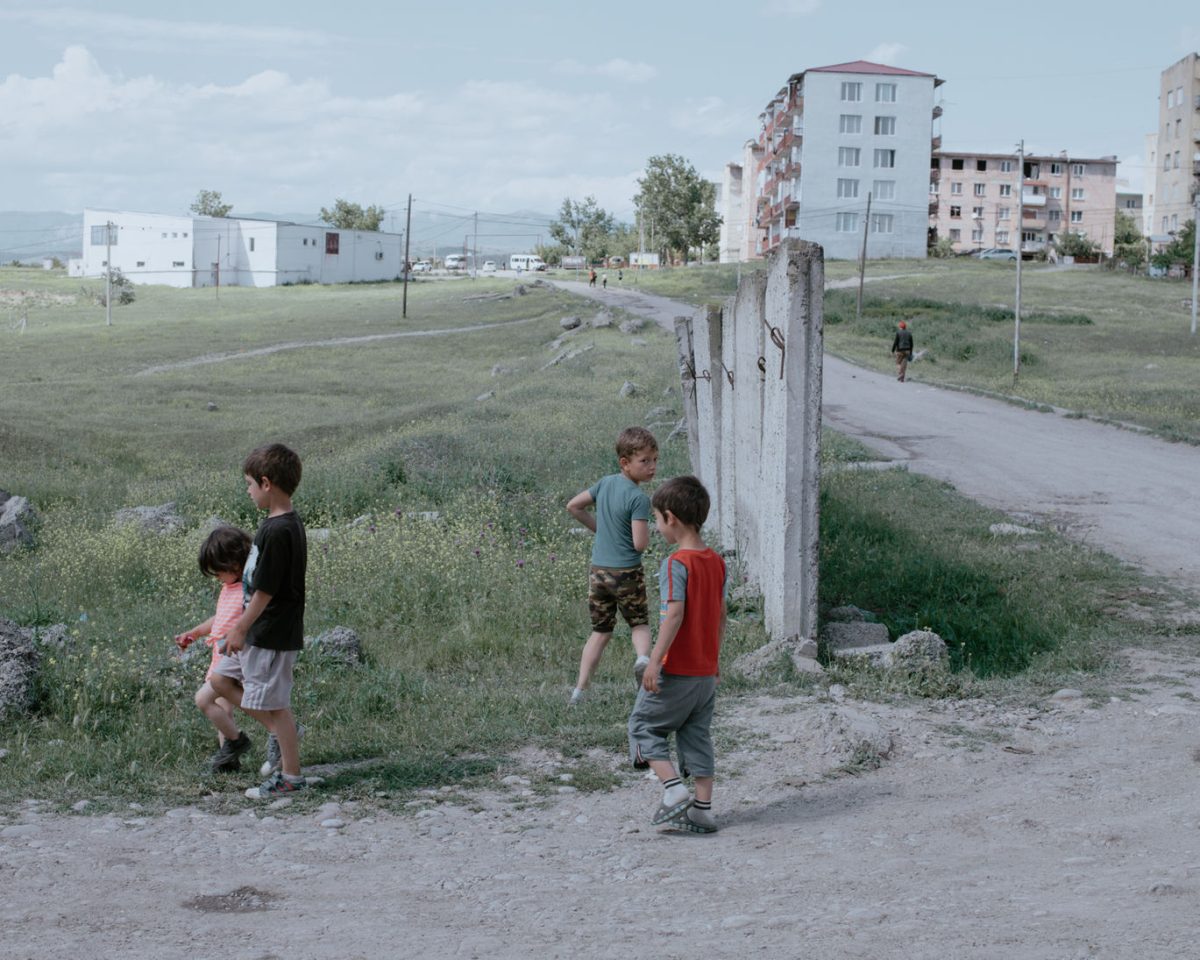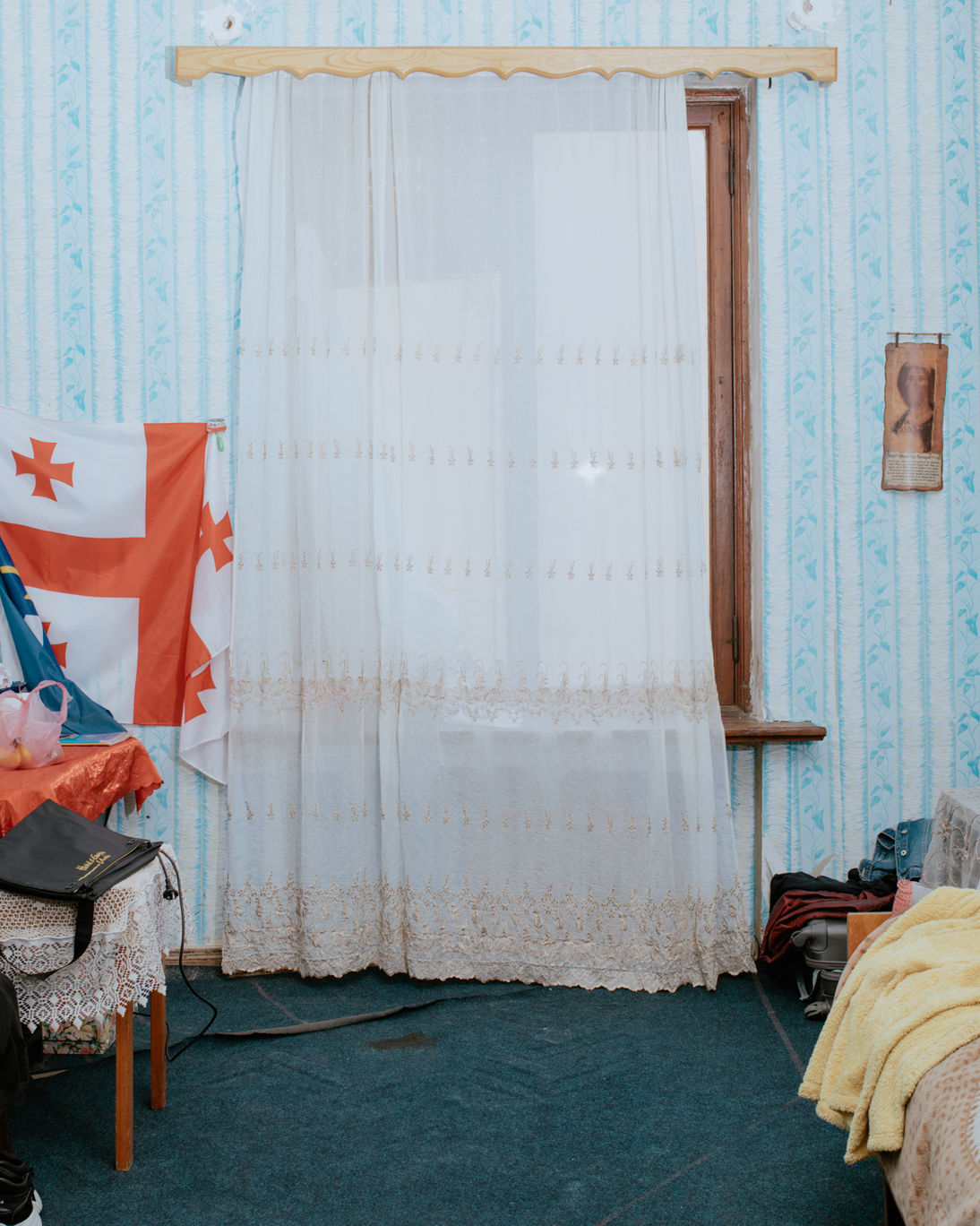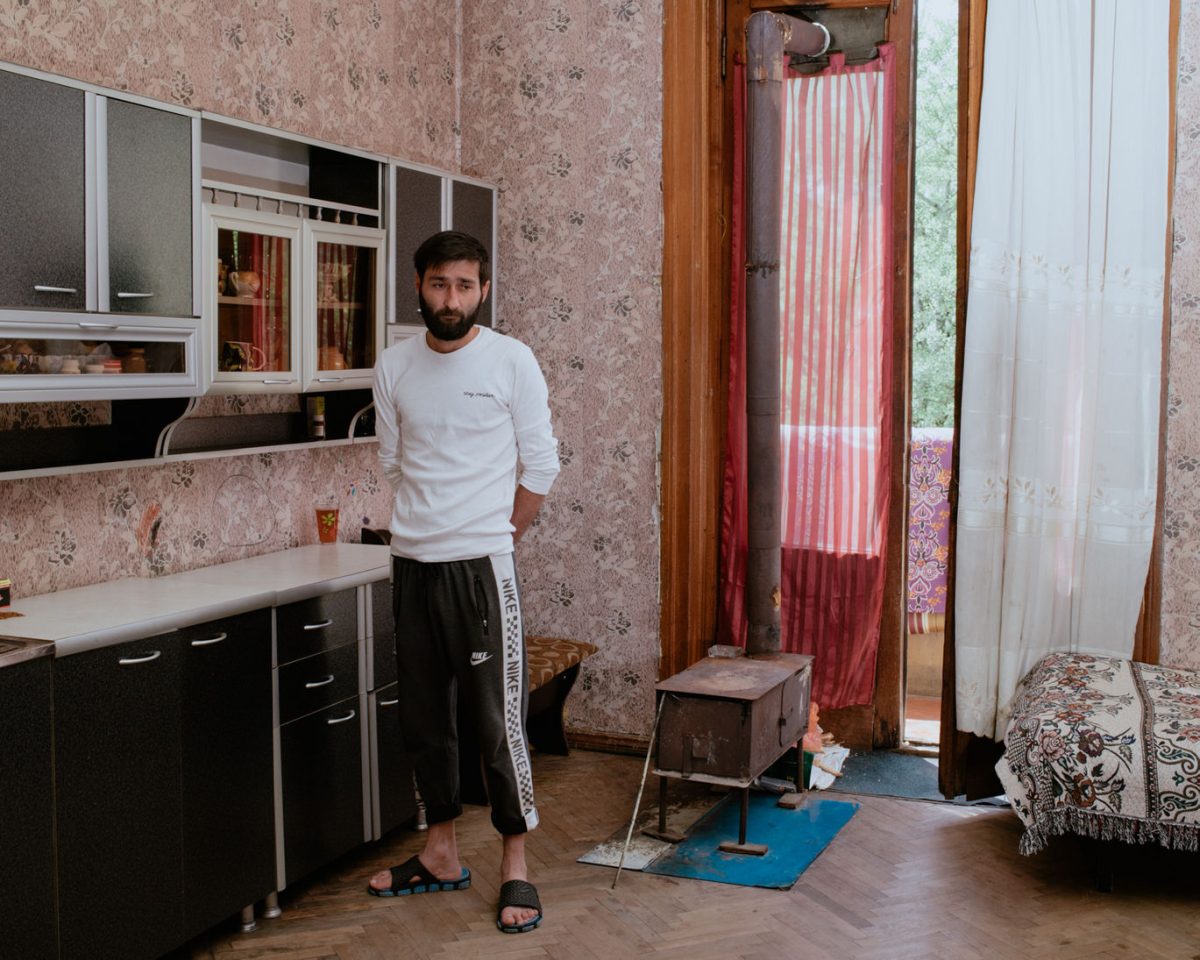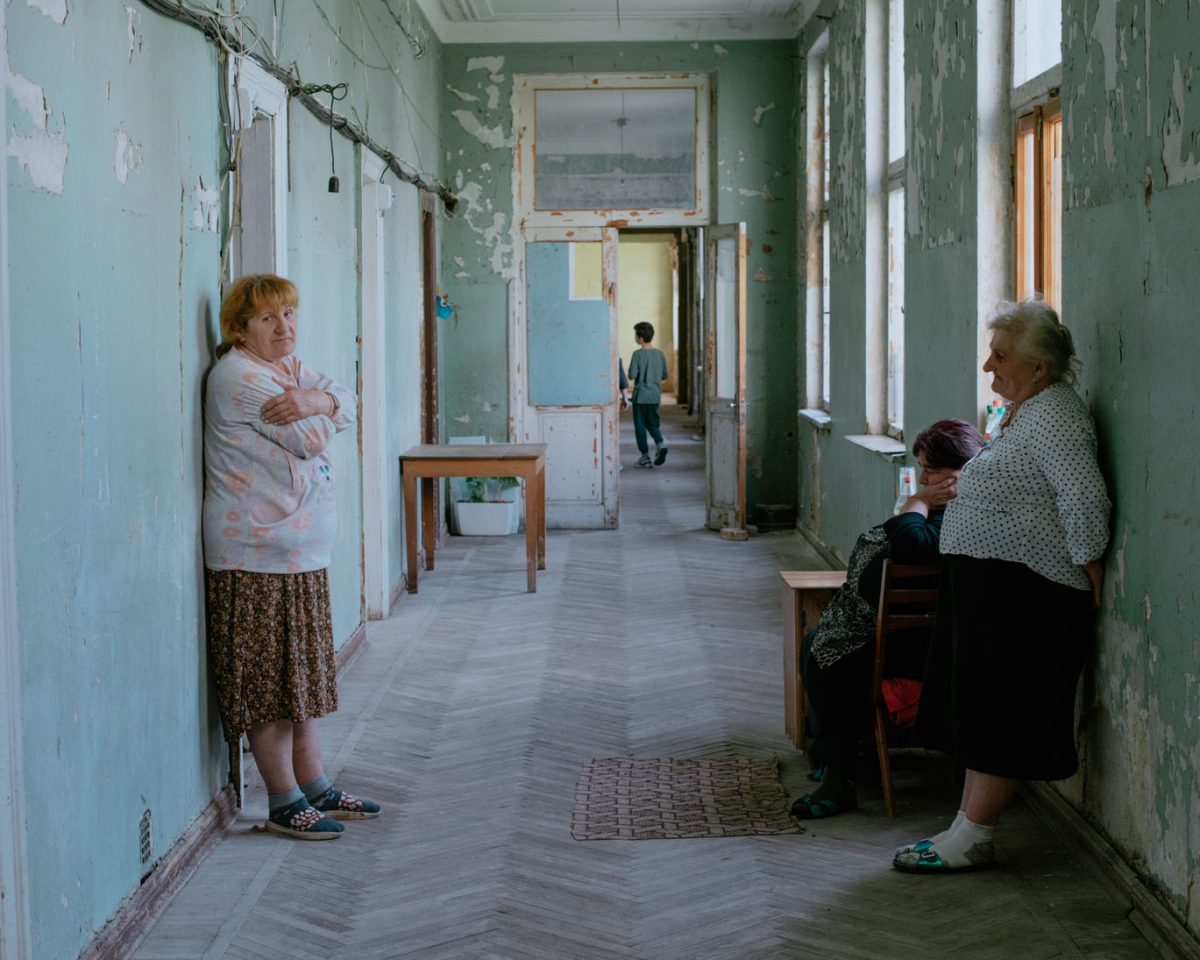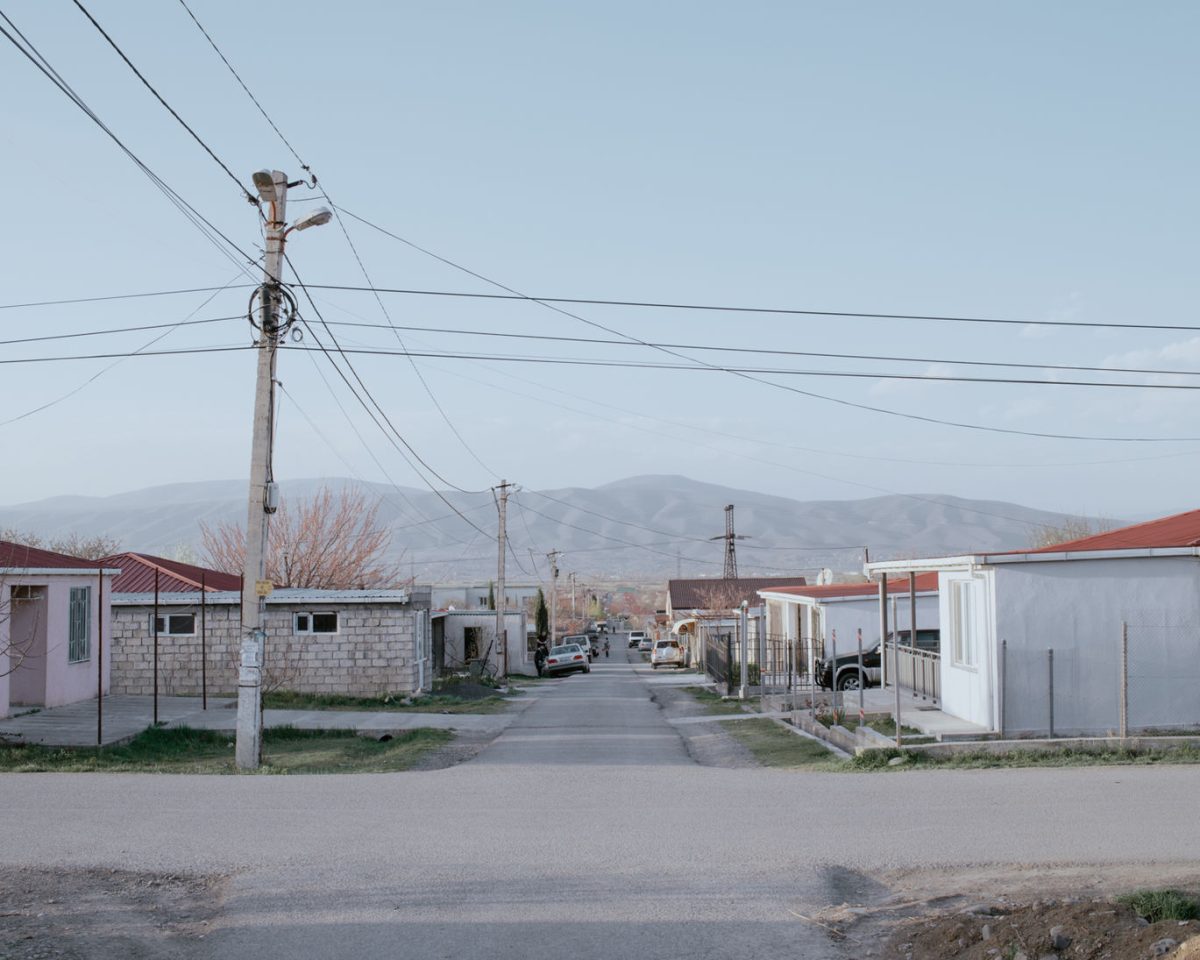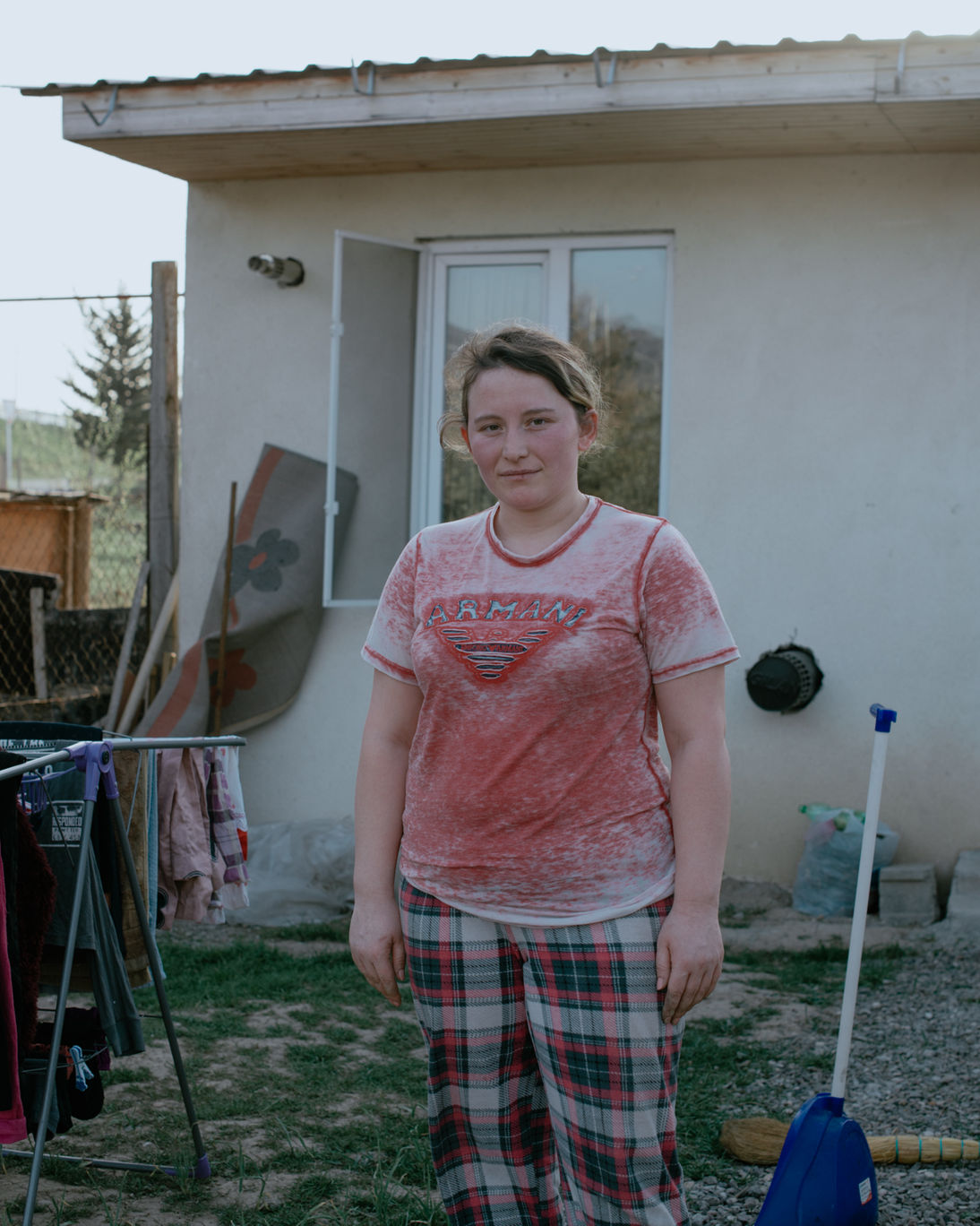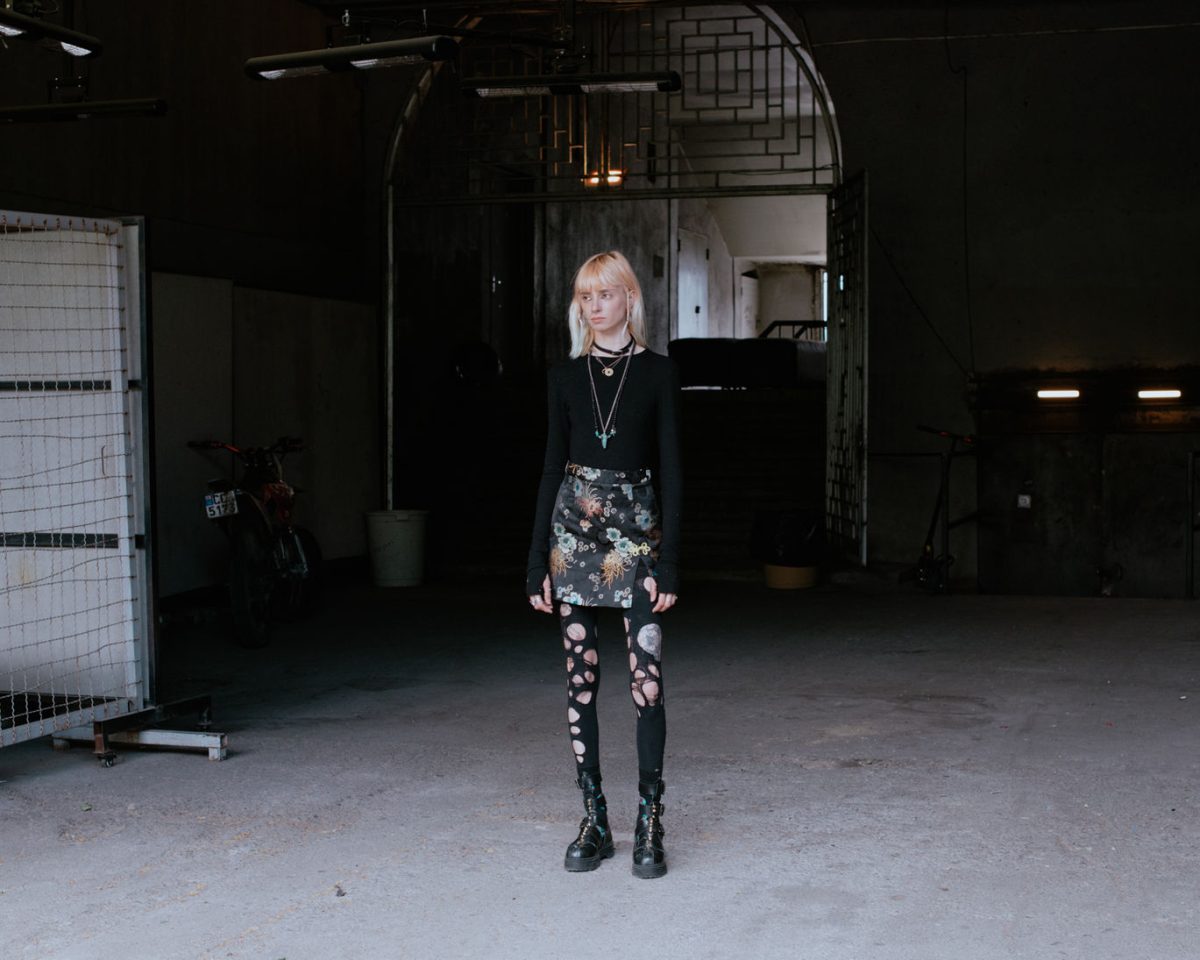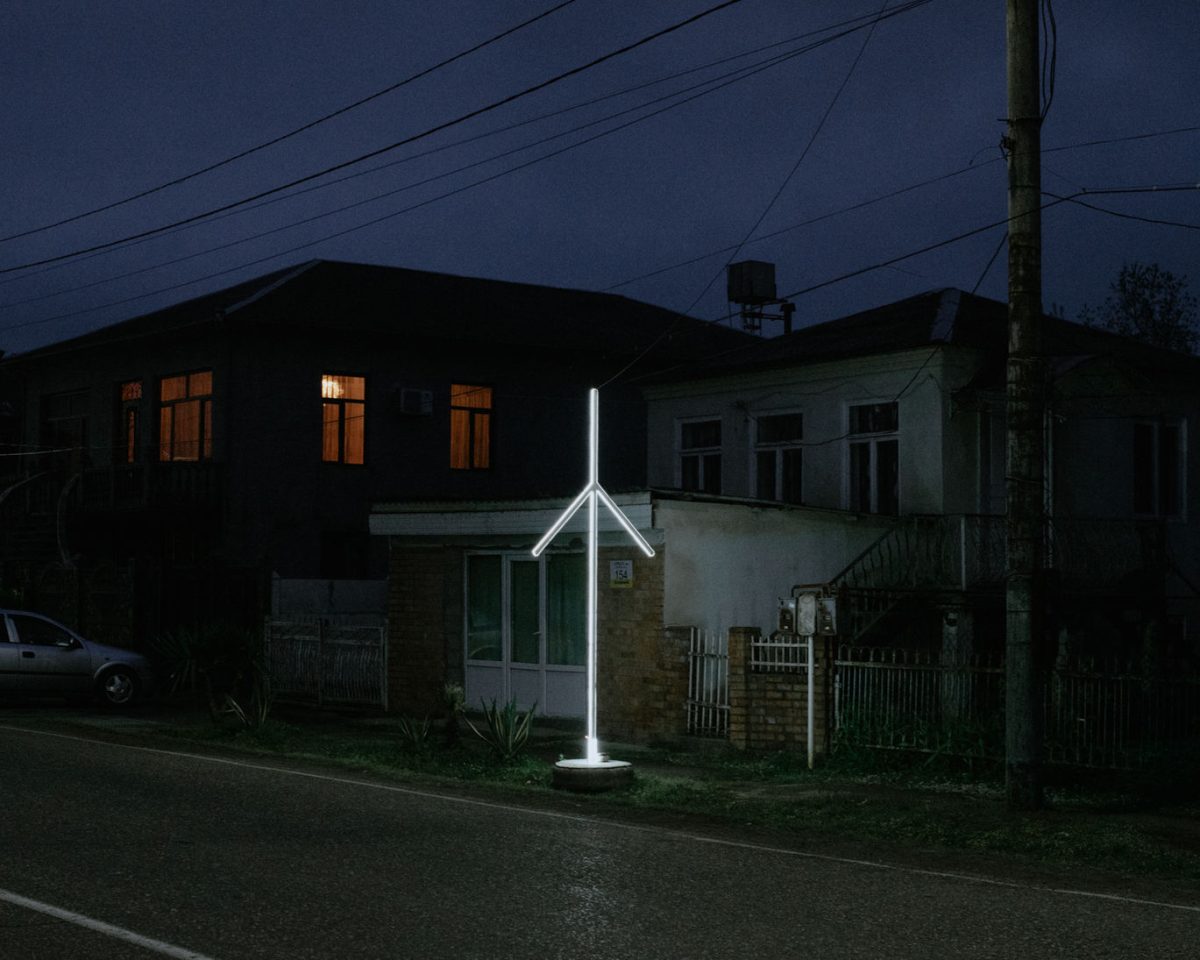![]()
© Jana Islinger. In the Soviet era, the town of Tskaltubo was a popular holiday destination, which boasted many sanatoriums. After the dissolution of the USSR, most of these sanatoriums fell into disuse and during the Georgian-Abkhazian War of 1992/93, they became home to thousands of refugees. Originally a temporary solution, these buildings are still inhabited by many people. They hope to get other accommodation from the government or to return to their homelan. Tskaltubo, Georgia. From the series Droa –Georgia on the move, 2022
![]()
© Jana Islinger. Mako, an Internally Displaced Person from Abkhazia. Mako fled his home in 1992 and now lives in an abandoned soviet sanatorium in Tskaltubo, Georgia. From the series Droa –Georgia on the move, 2022
![]()
© Jana Islinger. Jamse, Marina and Uligu in their home, a deserted hotel in Tskaltubo. Uligu lives there with her grandchildren. They are all waiting for the government to provide them with new housing. Tskaltubo, Georgia. From the series Droa –Georgia on the move, 2022
![]()
© Jana Islinger. South Ossetia declared independence from Georgia in 1990. At that time, Russian troops occupied the region, which encompasses large parts of the Georgian-Russian border. As Russia prepared to annex the province in 2008, Georgian troops intervened and entered South Ossetian territory. With the subsequent response from Russia, the Caucasus War started. The consequences were hundreds of deaths and thousands of people being forced to flee to other Georgian territory. Many of them were deprived of their land and homes, and are unemployed, unprotected, and unable to return to their homes in the now Russian-controlled territories. Many of the displaced people have been living in refugee camps since the Russian-Georgian war in 2008, often living on state support and struggling with the trauma of war. Tserovani Refugee Camp. From the series Droa –Georgia on the move, 2022
![]()
© Jana Islinger. 'We are glad that we got a home until we can go back one day. Back to our real home.' Salome, Tserovani Refugee Camp. From the series Droa –Georgia on the move, 2022
![]()
© Jana Islinger. The United National Movement (UNM) is a liberal and pro-Western party, founded in 2001 by Mikheil Saakashvili. It was a driving force during the "Rose Revolution" in 2003, and formed the government for almost 10 years until it was voted out in the 2012 parliamentary elections. Since then it has been the strongest opposition party, with an agenda focusing on Georgia’s integration into Euro-Atlantic structures and the elimination of corruption. Although the party was able to expand its sphere of influence in the early 2000s, it is now more difficult for it to counter the new ruling party, Georgian Dream, especially since its former chairman Saakashvili fell from grace. He is currently serving a prison sentence on corruption charges, which he denies. Meeting room of the United National Movement party, Tbilisi, Georgia. From the series Droa –Georgia on the move, 2022
![]()
© Jana Islinger. In Georgia, the "new generation" can be defined as those born after 1991 and the end of Communism. Since they grew up in a completely different system to their parents, their views differ far more fundamentally from them than is the case in Western Europe. Since 1998, ongoing protests have shown how emotionally Georgian youth react when they see their right to free expression restricted by the government. After several raids and the closure of two techno clubs in Tbilisi, up to 15,000 people gathered for protests, triggering a democracy movement. They see the government’s restrictive drug policy as a pretext for criminalising political dissidents. Renata in front of the Technoclub Bassiani, Tbilisi, Georgia. From the series Droa –Georgia on the move, 2022
![]()
© Jana Islinger. The Georgian Orthodox Church has a decisive influence in Georgia. Georgians trust their church more than the government, the judiciary, and the media. Today, the Church in Georgia enjoys tax exemption, strong political influence, and a steadily growing membership. Almost 80 % of all Georgians are members of the Georgian Orthodox Church. Yet it is also fractured and divided, and its conservative attitude often conflicts with Western-oriented politics and the younger generation. Orthodox cross on the roadside, Mingrelia, Georgia. From the series Droa –Georgia on the move, 2022
